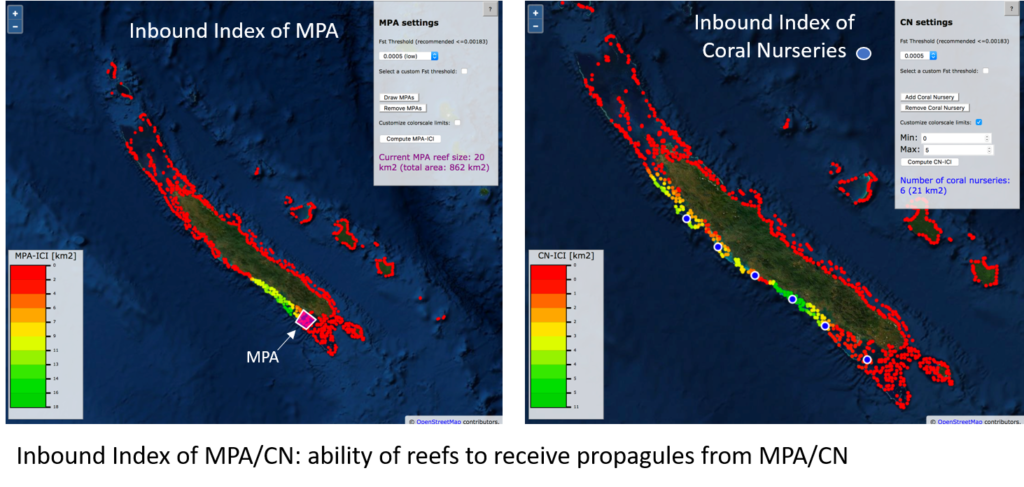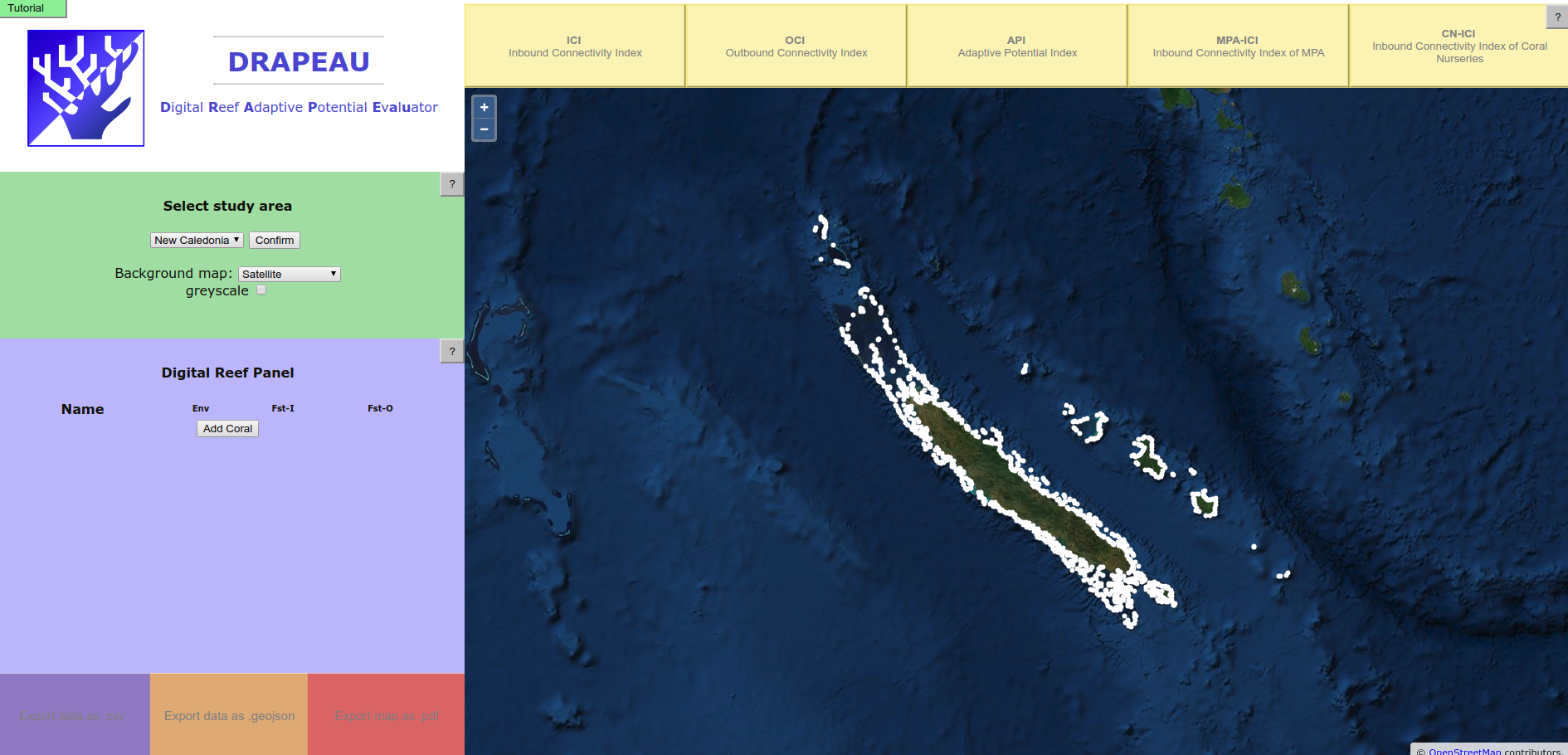The adaptation of corals to global changes is a key point to reef survival. However, due to a lack of knowledge, this important aspect is often neglected in conservation strategies.
Our seascape genomics project is based on the fact that corals that have evolved in a stressed environment have adapted to it ( visit SABLE project ).
By combining genetics, remote sensing, geography and computer science on the contrasting New-Caledonian seascapes, our results have revealed characteristic molecular signatures of corals adapted to certain environmental factors (e.g. heat stress), making it possible to define new indicators for prioritizing reefs.
The Drapeau application (Digital Reef Adaptive Potential Evaluator) integrates an interactive predictive application with cartographic rendering. This work constitutes an innovative tool which fill the gap between seascape genomics research and conservation management. The user can create an assortment of corals (“digital reef”) and predict which reefs are expected to be more or less isolated or which ones are expected to carry adaptive traits against climatic stresses. Furthermore, two interactive modes allow the user to draw, evaluate and compare the emplacement of conservation actions such as marine protected areas and coral nurseries.

A tutorial demonstration for DRAPEAU application can be found here: https://recifs.epfl.ch/drapeau



